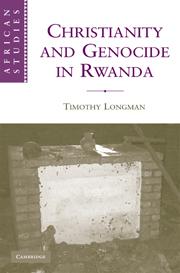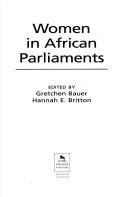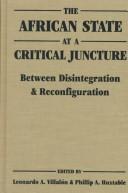| Listing 1 - 8 of 8 |
Sort by
|
Book
ISBN: 9781107017993 9781107678095 9781139086257 1107017998 1107678099 1108240747 1139086251 Year: 2017 Publisher: Cambridge, United Kingdom New York, NY Cambridge University Press
Abstract | Keywords | Export | Availability | Bookmark
 Loading...
Loading...Choose an application
- Reference Manager
- EndNote
- RefWorks (Direct export to RefWorks)
"Following times of great conflict and tragedy, many countries implement programs and policies of transitional justice, none more extensive than in post-genocide Rwanda. Placing Rwanda's transitional justice initiatives in their historical and political context, this book examines the project undertaken by the post-genocide government to shape the collective memory of the Rwandan population, both through political and judicial reforms but also in public commemorations and memorials. Drawing on over two decades of field research in Rwanda, Longman uses surveys and comparative local case studies to explore Rwanda's response both at a governmental and local level. He argues that despite good intentions and important innovations, Rwanda's authoritarian political context has hindered the ability of transnational justice to bring the radical social and political transformations that its advocates hoped. Moreover, it continues to heighten the political and economic inequalities that underline ethnic divisions and are an important ongoing barrier to reconciliation"--Provided by publisher.
Authoritarianism --- Collective memory --- Ethnic conflict --- Genocide --- POLITICAL SCIENCE / Government / General. --- Political culture --- Social change --- Transitional justice --- Political aspects --- Rwanda --- Ethnic relations --- Political aspects. --- Politics and government --- Criminal law. Criminal procedure --- National movements --- #SBIB:328H419 --- #SBIB:327.5H20 --- #SBIB:39A73 --- Conflict, Ethnic --- Ethnic violence --- Inter-ethnic conflict --- Interethnic conflict --- Social conflict --- Political science --- Authority --- Culture --- Change, Social --- Cultural change --- Cultural transformation --- Societal change --- Socio-cultural change --- Social history --- Social evolution --- Justice --- Human rights --- Collective remembrance --- Common memory --- Cultural memory --- Emblematic memory --- Historical memory --- National memory --- Public memory --- Social memory --- Memory --- Social psychology --- Group identity --- National characteristics --- Cleansing, Ethnic --- Ethnic cleansing --- Ethnic purification --- Ethnocide --- Purification, Ethnic --- Crime --- Instellingen en beleid: andere Afrikaanse landen --- Vredesonderzoek: algemeen --- Etnografie: Afrika --- Republika y'u Rwanda --- Rwandu --- Ruanda --- République rwandaise --- Republic of Rwanda --- Résidence du Ruanda --- Republika Nyarwanda --- Repubulika y'Urwanda --- Rwandese Republic --- République du Rwanda --- Repubulika y'u Rwanda --- ルワンダ --- Ruwanda --- רואנדה --- Ruʼandah --- Jamhuri ya Rwanda --- Руанда --- Республика Руанда --- Respublika Ruanda --- 卢旺达 --- Luwangda --- Ruanda-Urundi

ISBN: 9780521191395 0521191394 9780511642043 9780521269537 9780511641411 0511641419 0511638973 9780511638978 9780511636523 0511636520 9780511757976 0511757972 0511642040 0511847548 9780511847547 1107188687 9781107188686 0511640730 9780511640735 1282386360 9781282386365 9786612386367 6612386363 0511640056 9780511640056 051163790X 0521269539 Year: 2010 Publisher: Cambridge Cambridge University Press
Abstract | Keywords | Export | Availability | Bookmark
 Loading...
Loading...Choose an application
- Reference Manager
- EndNote
- RefWorks (Direct export to RefWorks)
Although Rwanda is among the most Christian countries in Africa, in the 1994 genocide, church buildings became the primary killing grounds. To explain why so many Christians participated in the violence, this book looks at the history of Christian engagement in Rwanda and then turns to a rich body of original national- and local-level research to argue that Rwanda's churches have consistently allied themselves with the state and played ethnic politics. Comparing two local Presbyterian parishes in Kibuye before the genocide demonstrates that progressive forces were seeking to democratize the churches. Just as Hutu politicians used the genocide of Tutsi to assert political power and crush democratic reform, church leaders supported the genocide to secure their own power. The fact that Christianity inspired some Rwandans to oppose the genocide demonstrates that opposition by the churches was possible and might have hindered the violence.
Genocide --- Ethnic relations --- Génocide --- Relations interethniques --- History --- Religious aspects --- Christianity --- Christianity. --- Histoire --- Aspect religieux --- Christianisme --- Rwanda --- Atrocities. --- Religious aspects. --- Atrocités --- Arts and Humanities


ISBN: 9781626371255 1626371253 1588264270 9781588264275 Year: 2022 Publisher: Boulder
Abstract | Keywords | Export | Availability | Bookmark
 Loading...
Loading...Choose an application
- Reference Manager
- EndNote
- RefWorks (Direct export to RefWorks)


ISBN: 1564321711 Year: 1999 Publisher: New York, N.Y. Human Rights Watch
Abstract | Keywords | Export | Availability | Bookmark
 Loading...
Loading...Choose an application
- Reference Manager
- EndNote
- RefWorks (Direct export to RefWorks)
National movements --- International movements --- Law of armed conflicts. Humanitarian law --- United Nations --- Rwanda
Book

ISBN: 9781685853815 Year: 2022 Publisher: Boulder
Abstract | Keywords | Export | Availability | Bookmark
 Loading...
Loading...Choose an application
- Reference Manager
- EndNote
- RefWorks (Direct export to RefWorks)


ISBN: 1555876285 Year: 1998 Publisher: Boulder (Colo.) : Lynne Rienner publ.,
Abstract | Keywords | Export | Availability | Bookmark
 Loading...
Loading...Choose an application
- Reference Manager
- EndNote
- RefWorks (Direct export to RefWorks)
Democracy --- Nation-state. --- Nation-state --- National state --- State, The --- National interest --- Self-determination, National --- Africa --- Politics and government
Book

ISBN: 9781685851828 1685851827 Year: 2023 Publisher: Boulder
Abstract | Keywords | Export | Availability | Bookmark
 Loading...
Loading...Choose an application
- Reference Manager
- EndNote
- RefWorks (Direct export to RefWorks)
This seminal volume explores the most important dimensions of state formation and erosion, social conflict, and the gains and setbacks in democratization in contemporary Africa. The results of nearly a decade of research, reflection, and collegial interaction, the collection delineates the dominant patterns of political restructuring since the upheavals of the early 1990s.
Book

ISBN: 9781782381655 Year: 2001 Publisher: New York Oxford
Abstract | Keywords | Export | Availability | Bookmark
 Loading...
Loading...Choose an application
- Reference Manager
- EndNote
- RefWorks (Direct export to RefWorks)
| Listing 1 - 8 of 8 |
Sort by
|

 Search
Search Feedback
Feedback About UniCat
About UniCat  Help
Help News
News